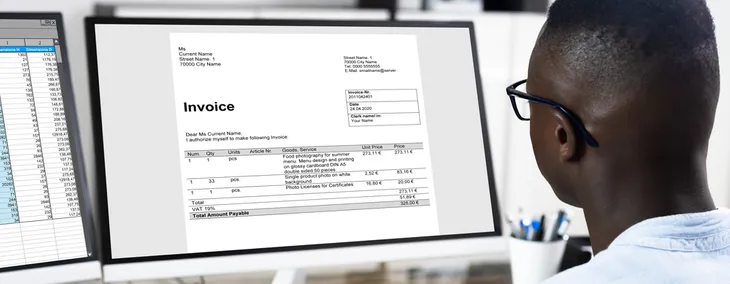- You can make a comfortable living working as a medical billing specialist.
- Many medical billers are able to work from home.
- There are various certifications for medical billers and coders to choose from.
Since the country spends trillions of dollars on healthcare, medical billing specialists play a crucial role in the industry. To keep track of patient procedures and ensure medical professionals are getting paid for their services, medical billers are tasked with billing and properly coding procedures. This job involves good attention to detail, a strong understanding of health insurance, and the ability to communicate with others.
If you’re interested in becoming a medical billing specialist, there are ways to get started. Search online to discover the various programs available to you.
Here’s a rundown on medical billing specialists and how to get certified.
What Is a Medical Billing Specialist?
There are many moving parts in medical settings. On the administrative side, there are professionals responsible for medical coding and billing. Medical billing specialists ensure healthcare providers are reimbursed for their services by handling patient invoices and communicating with insurance companies.
Billing consists of coding medical services and preparing the necessary invoices. They are also responsible for correcting rejected claims, tracking payments, and following up with insurance companies or patients on outstanding bills.
 Andrey_Popov / Shutterstock
Andrey_Popov / ShutterstockMedical Billing Tasks
It’s important for a billing specialist to be a strong communicator, organizer, and problem solver. They should also be attentive to detail as they’re responsible for recordkeeping and noticing discrepancies.
A day in the life of a medical billing specialist may consist of the following:
- Discuss bills with insurance companies or patients;
- Communicate with patients regarding insurance information;
- Discuss financial options with patients;
- Use software to submit insurance claims;
- Review payment records;
- Understand and use ICD-11, and;
- Review patients records and code them.
 Andrey_Popov / Shutterstock
Andrey_Popov / ShutterstockThe Salary Is Desirable
The national average salary for senior medical billing specialists is $47,535. ZipRecruiter says top earners in this profession could earn as much as $63,000 per year. On the lower end of the spectrum, some billing specialists can make a salary of $34,000 per year.
Some employers may also provide its billing specialists with additional benefits. This can include:
- 401(k) with matching;
- Flexible schedule;
- Paid time off, and;
- Dental, health, and vision insurance.
 Andrey_Popov / Shutterstock
Andrey_Popov / ShutterstockWork Hours Are Consistent
Not everyone wants a job that requires overtime, changing schedules, and inconsistent hours. Working as a medical billing specialist is a career where you can avoid a chaotic work schedule. In fact, it’s one of the few jobs in healthcare that likely won’t require you to be on call or work weekends.
A regular 40-hour work week is something you can expect when hired as a billing specialist. In some cases, you may be able to choose your own hours if you work from home.
 Andrey_Popov / Shutterstock
Andrey_Popov / ShutterstockGreat Job Stability
According to a survey conducted by Lincoln Financial Group, 27-percent of American adults worry about job security. If you want to choose a career without the fear of layoffs looming over you, medical billing might be a good choice.
Medical billing specialists are in high demand. According to the University of Houston, it’s one of the fastest growing professions. In fact, it’s estimated that at least 27,000 new medical billing and coding specialist jobs will be needed by 2026.
 Andrey_Popov / Shutterstock
Andrey_Popov / ShutterstockWhere Do Medical Billers Work?
Medical billing specialists are needed in a variety of healthcare settings that deal with billing codes and patient claims. You may also find remote jobs and be able to work from home. In this case, the company will typically set you up with a computer and other necessary equipment.
Indeed says medical billers can be employed at a:
- Hospital;
- Physician office;
- Insurance agency;
- Government agency;
- Outpatient surgery center or clinic;
- University with medical programs, and;
- Healthcare consulting firm.
 hxdbzxy / Shutterstock
hxdbzxy / ShutterstockMedical Billing vs. Medical Coding
It’s important not to get medical billing confused with medical coding. While the two jobs may sound like the same thing, they serve different purposes. Professionals often get certified in both jobs to advance their career opportunities and make themselves more hirable.
Medical coders translate patient care into current procedural terminology. Alternatively, the University of Texas says medical billers are responsible for creating a claim based on the codes a medical coder provides. Entry-level jobs will typically require you to have at least completed a certificate program.
 Andrey_Popov / Shutterstock
Andrey_Popov / ShutterstockBecoming a Medical Billing Specialist
To get started as a medical billing specialist, you’ll want to get certified in healthcare billing and coding. While medical coding is a different entity, it can be helpful for aspiring medical billers to be trained in this concentration as well.
Indeed explains how these certifications test your knowledge and demonstrate your level of expertise in a respective discipline. Getting certified by multiple programs and agencies can lead to an increase in pay. Plus, it will open more doors for employment.
 fizkes / Shutterstock
fizkes / ShutterstockThree Types of Code Sets
Those interested in medical coding can choose between a few different types of code sets to learn. Again, learning more code sets or obtaining multiple certifications can help better your career. You could start by learning the code set you’re most interested in and continue from there.
Indeed says the three code sets you could learn are:
- Current Procedural Terminology: Used to report procedures and services.
- International Classification of Diseases, 10th Revision, Clinical Modification: Used to classify symptoms, diagnoses and procedures.
- Healthcare Common Procedure Coding System: A group of health care procedure codes.
 Andrey_Popov / Shutterstock
Andrey_Popov / ShutterstockMedical Billing Certifications
There are a variety of medical billing certifications to choose from. You can choose a program based on your interests and where you want to get employed. There are general medical coding programs as well as specialty fields to consider.
You can learn medical coding specifically for:
- Classifying medical data from patient records;
- Surgical procedures performed by general surgeons, OB/GYN physicians, orthopedists, and other types of surgeons;
- Anesthesia cases;
- Medical claims in an inpatient facility or hospital, and;
- Diagnosis codes used in risk adjustment payment models.
 GaudiLab / Shutterstock
GaudiLab / ShutterstockMedical Billing and Coding Program Costs
The prices for medical billing certification will vary depending on the type of program you choose. For instance, it will cost more money to pursue an associate program at a college. In fact, tuition can range anywhere from $8,000 to $19,000.
Instead, you may want to pursue an online program that costs less money. You can sign up for an online certificate program for a national average of $1,210. This includes the necessary materials to complete the course and can be completed in as little as 3- to 4-months.
 Andrey_Popov / Shutterstock
Andrey_Popov / ShutterstockSearch Online for Medical Billing Jobs
If you’re looking for a career in healthcare without having to go to medical school, then a medical billing specialist might be something you’re interested in. This career path has steady hours, livable wages, and positive job security.
Make yourself a suitable candidate for the job by getting certified. You can learn about the various certifications out there and find training programs online. Consider doing multiple certifications to potentially increase your salary and job opportunities.
 Andrey_Popov / Shutterstock
Andrey_Popov / Shutterstock


